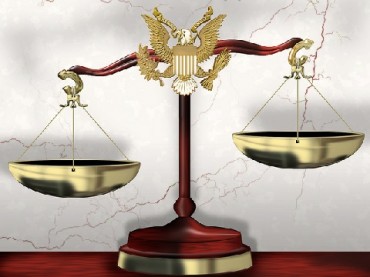
Texas Tech University doesn’t want anything to get in the way of students reporting their alleged sexual assaults. Not even a fair hearing for those they accuse.
The Daily Toreador reports that the administration wants students to see the disciplinary process as a “learning experience,” so giving them the common trappings of a courtroom would be harmful.
According to Dean of Students Amy Murphy:
Also a part of this model, she said, is the decision that students are not able to cross-examine witnesses, nor are the students’ advisers, during the hearing.
If cross-examination were to be allowed, she said, it would create a chilling effect for future possible reports.
“We want responding and reporting parties to talk to that investigator about the questions that they have for witnesses,” Murphy said, “the information that they want to see in that investigation report.”
That “investigator,” by the way, is “neutral,” according to Murphy.
Student Andy Johnson evidently has more intelligence than his dean:
“I can’t speak for other people and I’m only thinking about if I were accused,” he said, “but if it were me I’d be mad that no one could represent me. I’m a student. How am I supposed to know what to say and what not to say?”
He said if he could change the system, he would make it more like a court system because college is his real world right now, so it should resemble the real world.
In a related article, we’re told four times just how “unbiased” this investigator is:
The investigator, an unbiased fact gatherer within the Office of Student Conduct, will speak first with the student accused in the report or the person who initially filed the report, depending on the type of case, [Associate Director Brittany Todd] said. …
A large part of the investigator’s job is staying unbiased and only acting as a fact gatherer during the investigation portion of the process.
Todd said when she first calls a student in to her office, she explains she is unbiased and is going to have the exact same conversation with the other student involved.
While the Office of Student Conduct is there to help resolve issues, Todd said she refers students to the counseling center or other remedies to be able to talk with someone outside of the unbiased nature of the investigation process.
Susan Kruth of the Foundation for Individual Rights in Education rips apart these justifications for depriving students of due process:
When it comes to sexual assault cases—in which a student’s educational career depends on whether it can be proven that he or she committed a serious, sometimes violent offense—how can the fact-finding process not be adversarial? …
Murphy’s characterization of the process as a “learning opportunity” presumes that the accused has done something wrong and needs to be taught a lesson. But the only lesson innocent students will learn from a system that does not allow them to fully defend themselves is that colleges frequently ignore their legal and moral obligations to protect the rights of all their students.
When a campus administrator promises that you’ll be better off by telling them everything, don’t believe her, Kruth says:
Apparently Todd isn’t one of the five million people who has watched a viral YouTube video of a professor and former criminal defense attorney explaining why you should never talk to the police without an attorney. Those who have know the incredible potential for seemingly innocuous statements to be used against an individual in a criminal court. And since anything an accused student says in a disciplinary hearing can be used against him or her in a criminal hearing, the lessons of that video apply to a student speaking in their own defense during campus disciplinary procedures, too.
Perhaps the college version of Ronald Reagan’s famous scare quote, “I’m from the government and I’m here to help,” is “I’m from the Office of Student Conduct and I’m unbiased.”
Greg Piper is an associate editor at The College Fix. (@GregPiper)
Like The College Fix on Facebook / Follow us on Twitter
IMAGE: Donkey Hotey/Flickr
Like The College Fix on Facebook / Follow us on Twitter






Please join the conversation about our stories on Facebook, Twitter, Instagram, Reddit, MeWe, Rumble, Gab, Minds and Gettr.